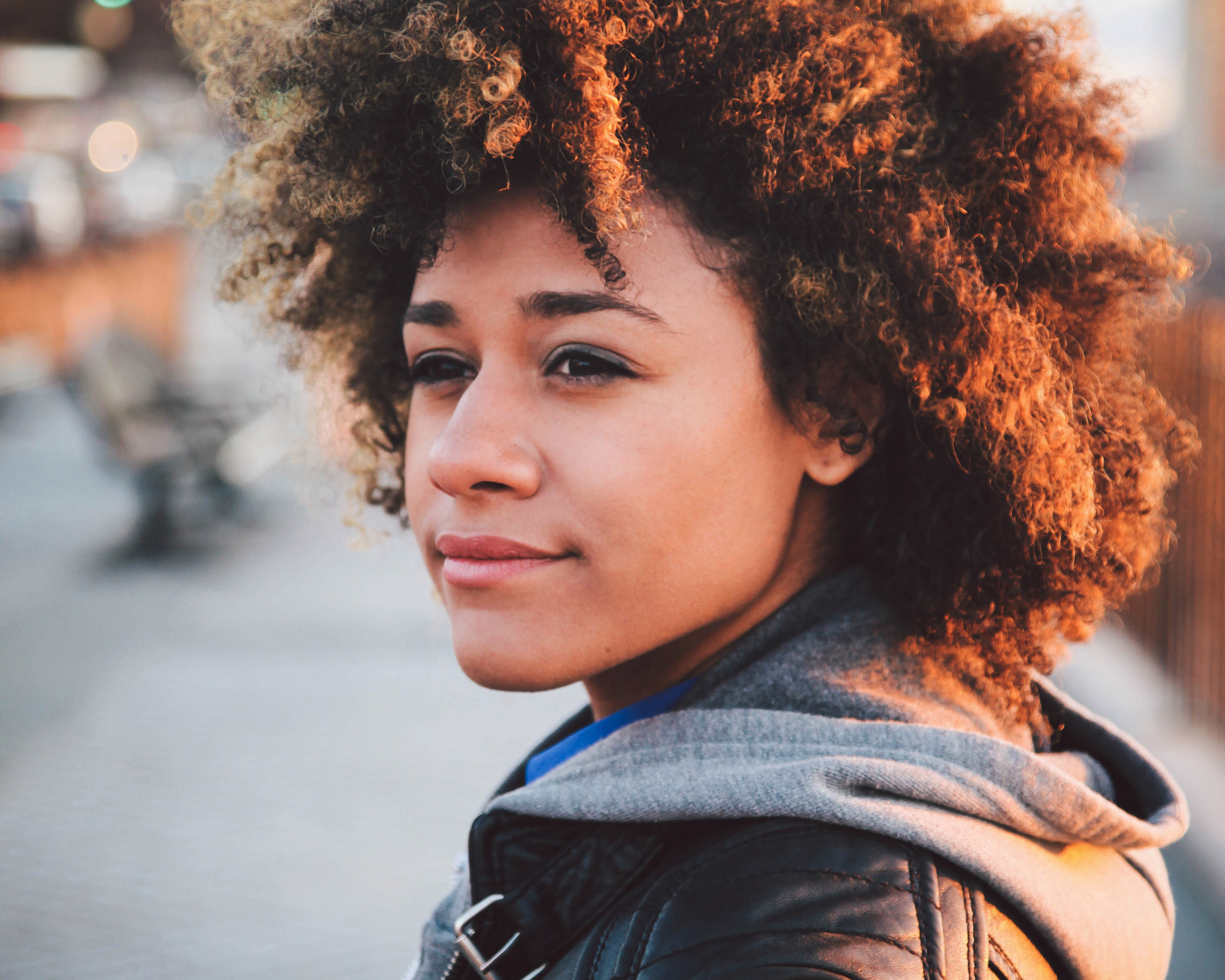
- Interview by Kelly d’Amboise June 9, 2016
- Photo by Amy Dickerson
Ariana DeBose
- actor
- choreographer
- dancer
Ariana DeBose is a New York City-based actor, award-winning choreographer, and dancer, who currently plays “The Bullet” in the hit Broadway musical, Hamilton. Previously, she completed the Off-Broadway run of HAMILTON at The Public Theatre, appeared in the Tony-winning revival of Pippin, played the role of Mary Wilson of the Supremes in Motown: The Musical, and appeared in Andy Blankenbuehler’s Bring It On: The Musical. She originally trained at CC & Co. Dance Complex in Raleigh, NC, and has worked with numerous choreographers from New York to LA.
Ariana DeBose is a rare and true triple threat currently blazing the stage of the Richard Rodgers Theatre as “The Bullet” in the great American musical, Hamilton. At 25, this phenom is on her fourth Broadway show, recently wrapped her first indie film, and moonlights as a songwriter, but what she really wants to do is write fiction. A young artist brimming with creativity, Ariana recently treated photographer, Amy Dickerson, and I to a personal and highly coveted behind-the-scenes tour of Hamilton, where we brushed shoulders with the show’s talented cast, ogled over the sepia-toned set and racks of Revolutionary costumes, and walked the storied backstage of this Broadway juggernaut. —Kelly d’Amboise
Was creativity part of your childhood, and how did you find your spark for the arts? I was surrounded by creativity. My mom is a single parent, and we lived with my grandmother for a portion of my youth. My grandma made sure I got into dance. She often took me to festivals; I remember going to the Azalea Festival and being exposed to different kinds of art and music. I didn’t just listen to Whitney Houston—I listened to Dinah Washington, too.
I also enjoyed animated films and drawing. My mom was an artist, and she still paints now. I guess you could call her an amateur, but she loves to paint and draw. Those are activities she and I did together frequently.
After being exposed to many different art forms, why did you choose dance as a focus? To be perfectly honest, I fell into it. My grandmother saw that I liked to move when music played, so she thought dance was be a good idea. She enrolled me in ballet, tap, and jazz, as many people do for their kids when they’re three years old. I took to it really quickly. I’m a competitive person, so I like being the best at things, (laughing) and I happened to be really good at it. My teachers took a liking to me, and I was bitten by the bug from an early age. I loved dancing.
Did you always know you were good at it? I did. I can’t tell you how I knew, but I did. We had lived in Wilmington, NC, and then moved to New Bern, which meant we had to find a new dance studio. It was financially challenging because, at that point, it was just me and my mom. She was starting out in her professional career, so it was tough, but she took me to Dance Theater of New Bern. The woman who owned it met me and immediately taught me steps, which I did—what I didn’t know was that she taught me steps that her twelve-year-olds were doing, and I was six. She essentially put me on scholarship and allowed me to take as many classes as possible.
See, I’ve sort of happened into things. We were in the right place at the right time and met the right people who helped me to continue to do the thing I love to do.
But it sounds like you also had the support of your mom and grandmother to help guide you into that. Oh, absolutely. They were 100% behind me the whole way, and still are. I have the greatest mom in the world. She’s my best friend.
“My grandmother saw that I liked to move when music played, so she thought dance was be a good idea. She enrolled me in ballet, tap, and jazz…My teachers took a liking to me, and I was bitten by the bug from an early age.”
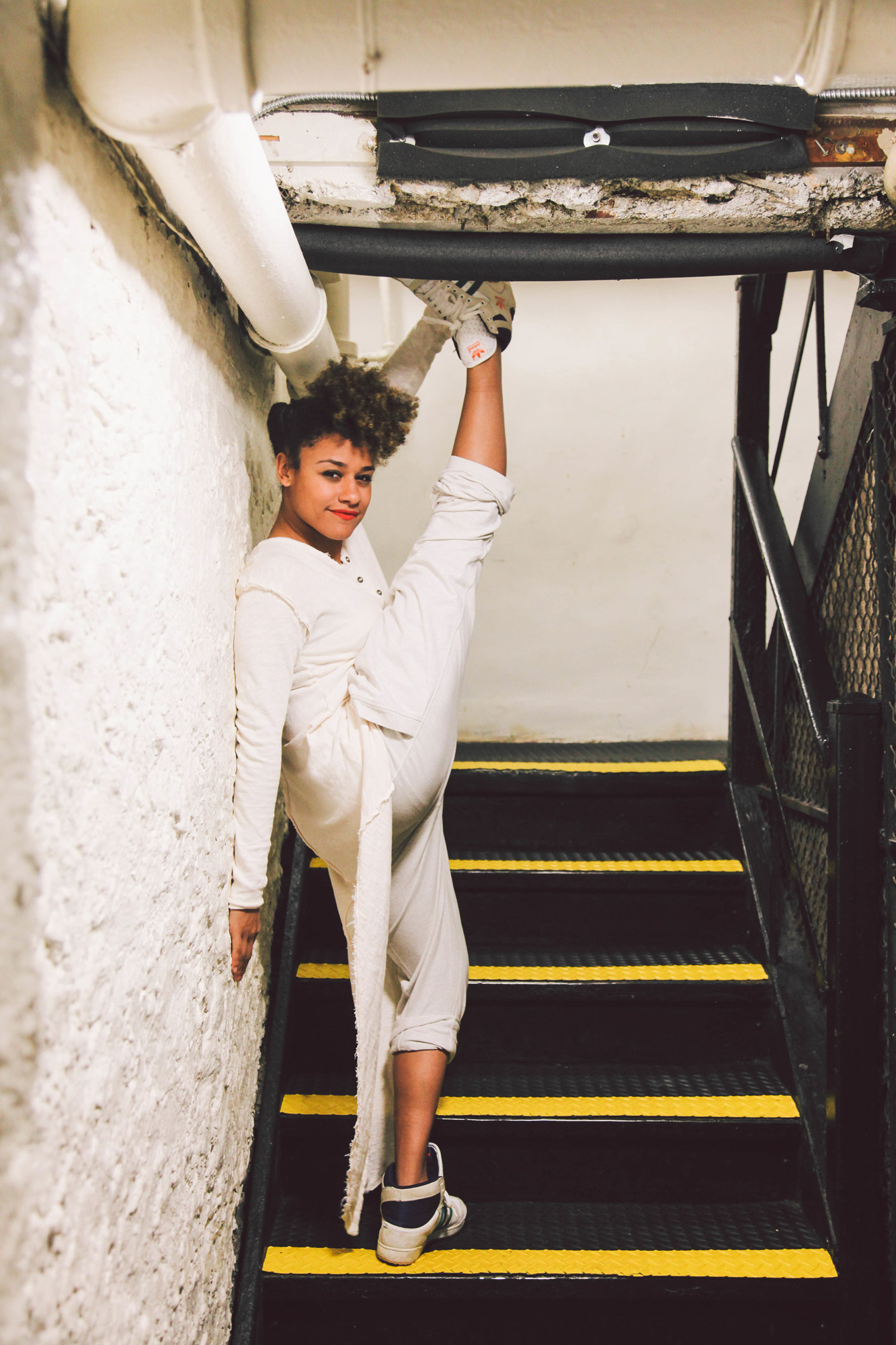
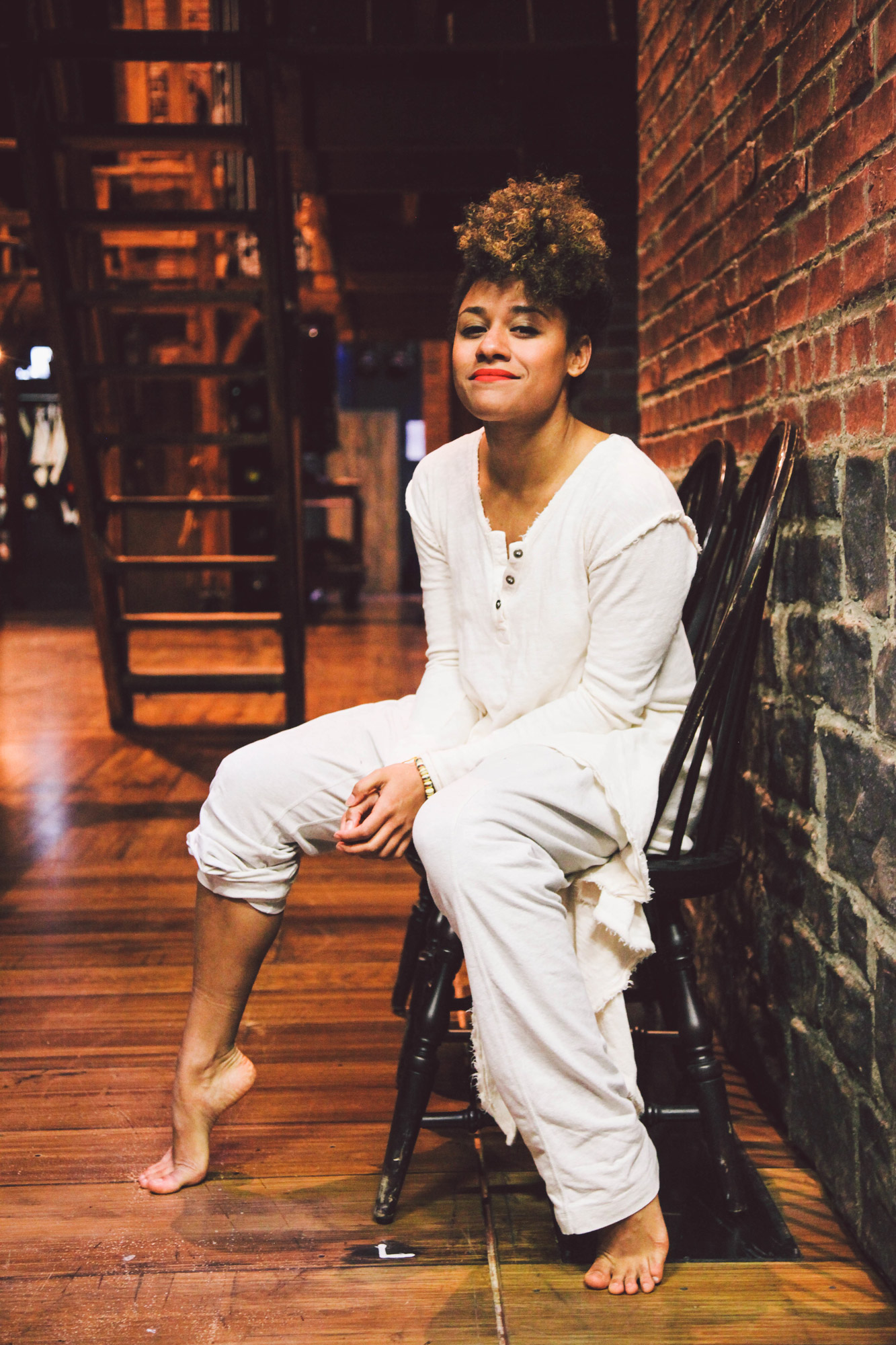
That’s cool. Speaking of that, was there anyone in your life outside of your mom or grandmother who have been mentors to you throughout your childhood or even now in your professional life? I have two very good mentors, whom you know: Charlotte d’Amboise and Terrence Mann. I think I was 17 when I met Charlotte and 15 when I met Terrence. He was in North Carolina to sing at a benefit called the North Carolina Education Ball, and the women who ran it saw me in a high school play and thought I was a great singer, even though I didn’t know what I was doing. She put me in the show and I sang with Terrence.
Two years later, Terrence remembered me, and by association I met his wife, Charlotte, who took me under her wing. I’ll never forget: I had gone up to New York to see A Chorus Line because I had been cast in it to play the character, Cassie. I was learning the role to play back home in an all-county production. One day, Charlotte and I were sitting in the dance studio, and she looked at me and said, “Well, what do you want to do?” I replied, “Well, I want to dance. I’d like to sing and act as well, but whatever comes first.” She said, “Do you want to go to school? Because I don’t think you need to.” (laughing) It was such a Charlotte thing to say—
She’s a straight shooter. When she sees talent, she knows it, and she’ll tell you exactly what she thinks. Yes, absolutely. And it’s that mentality that I keep going back to her for, because she is totally honest with me. She’ll tell me when she thinks I’ve made a mistake or when she thinks I did great. She helps me figure it out. I’ve been through a lot of crazy things in a short span of time here in New York, and I don’t think I would have navigated them without Terrence and Charlotte, who helped guide me through it all. Yes, the business is changing, but they’ve been around it and have so much knowledge. There’s no way I would have known what I know without them.
You are very open about your relationship with your girlfriend, Jill Johnson, a Broadway Props Master. While you are surrounded by loving friends and mentors, did you find it difficult at all to come out to your family and community? Yes, I am in a very committed relationship with Jill, who I am crazy about. The Broadway community is all about love and acceptance so when my relationship became public, it wasn’t a thing.
As far as my “coming out,” I don’t feel like it was a big event. My mom and I have always been close and I remember saying to her in the car once that I thought I could love a man or a woman—I was 11 or 12. Being around so many gorgeous dancers growing up, I think it was inevitable that I formed an attraction to both bodies. I think humanity is sexy. So, no, it wasn’t hard to be honest with my mom.
Growing up I was very private about who I liked as far as sharing with my family aside from my mom, so for a while I think they assumed I only liked boys. I never brought anyone home because I never saw the point of introducing someone into my family circle unless I felt like I wanted to be with them for a long time. I suppose you could say I “came out” about Jill to my family. I will say my grandparents made me a bit nervous when I decided to have that conversation given generational differences and political beliefs, but it was pretty casual and they already knew anyway. They love me and are incredibly supportive regardless of our political differences—and that’s that.
But I want to be clear. I claim no label. I personally don’t believe labels help anything. I simply am who I am and love whomever I choose to love. That being said, I have absolutely no problem with those who do identify and actively claim one. For myself, I have known from a very early age that I could fall in love with a man or a woman; it didn’t and doesn’t matter to me. I see no gender, I only see the person.
Is your sexuality ever an issue for you as an actor in terms of casting? I have to wonder if actors feel nervous about revealing their sexuality for fear of typecasting, and how you feel about that? There was an article that came out about Jill and I on Playbill.com in October of 2015. We had been together for about a year at that point. I did notice that after that I received more auditions for lesbian roles than I had before, but it was still proportionate to the auditions I got for straight women.
However, that’s the extent of it. At the end of the day your personal life has nothing to do with your abilities as an actor. So what? I love a woman. With the success of Hamilton and my willingness to be open about my relationship and beliefs, I have definitely seen an increase in my interactions with young people who identify as LGBTQ—and I love that.
What would you say to young people wrestling with fears about coming out in today’s world? So many of them are trying to figure out who they are—and if anything that I have done so far can serve as a guide, inspiration, or source of hope then I’m happy to be that for them. I feel such compassion for young people who are afraid to be themselves and speak up. I was that kid. It does get better.
Thank you for sharing. Did you have any kind of “Aha!” moment when you knew you wanted to pursue dancing professionally? Oh, yes. I remember that very clearly. It was opening night for A Chorus Line back home. I was doing “Music In the Mirror,” and I felt like I wasn’t in my body anymore. I’ve had that feeling since then, and it’s like a certain transcendence. My voice wasn’t mine, but I could still hear it, and it was a fascinating feeling. I think I was doing the big Swan Lake circle in the Cassie dance, and I went into a saut de basque and literally felt like I was flying. I thought, “When I feel like this, I’m doing the work I’m supposed to be doing.” That’s what I had to chase. When I don’t feel that anymore, then I know it’s time to move on.
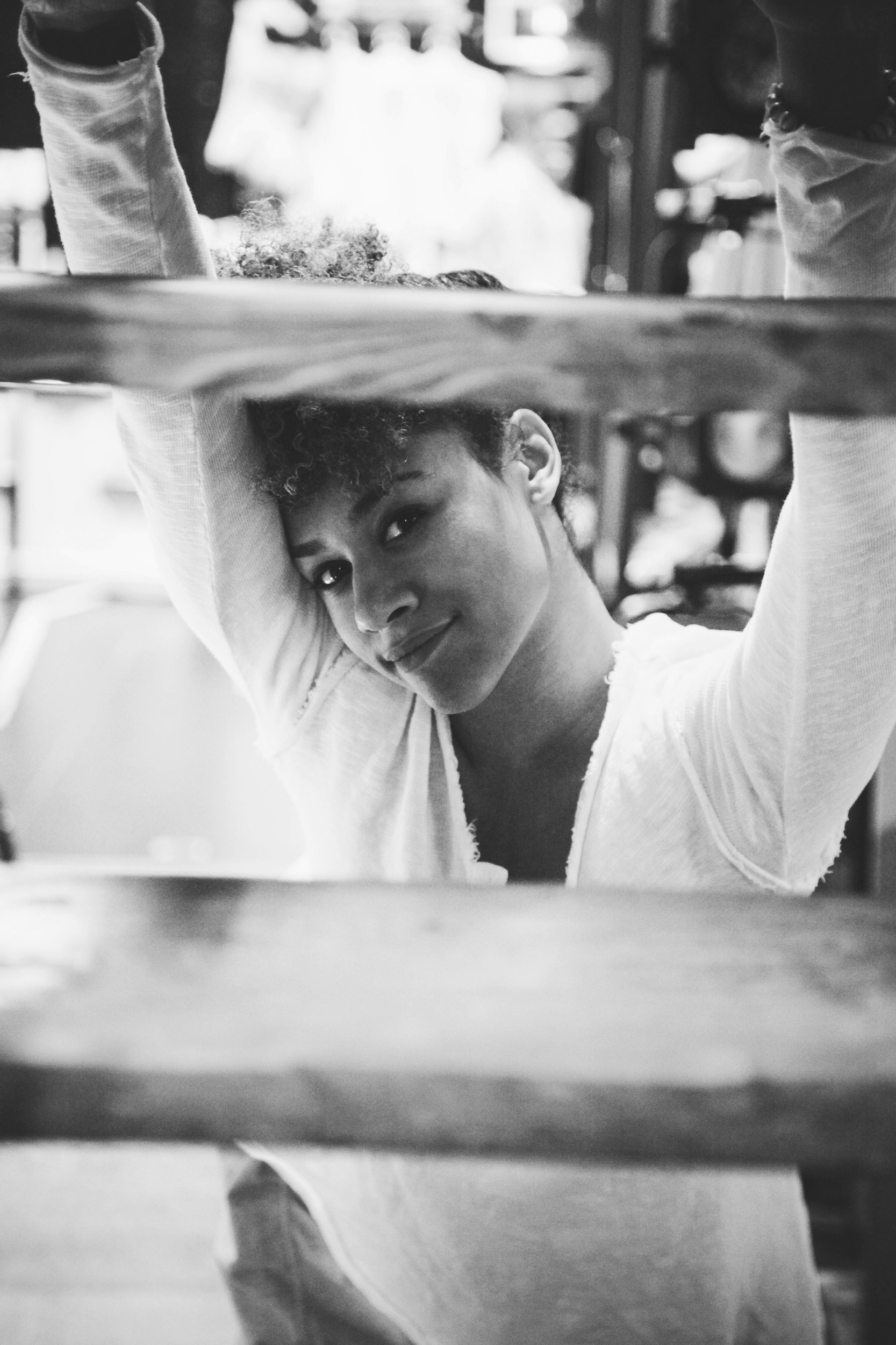
“…you have to follow your gut. When I decided to forego school and move to New York to try to make a go of it, I knew then in my gut that it was the right thing to do.”
Choosing not to go to school is a big risk for a young person. Since then, are there any other big risks you’ve taken that have helped you move forward? As far as big risks are concerned, the best thing I can say on the topic is that you have to follow your gut. When I decided to forego school and move to New York to try to make a go of it, I knew then in my gut that it was the right thing to do. I don’t know if I would have made that decision now at 25 years old.
My second Broadway show was Motown, and I left the show after my contract was up without another job to go to. But I knew at the time that it was the right thing to do. It’s a risk for us Broadway gypsies. If we don’t have another job to go to, we can collect unemployment, but that will run out.
Yeah, and Broadway gigs are tough to come by. You haven’t only been lucky—you’ve been prepared, but you’ve also been in the right place for the right roles. Choosing not to go to school isn’t for everybody, but it was for you. What happened once you left Motown? I think I had about four months off, which is the longest I’ve been without work since I moved to New York City. Right around the time I started getting antsy about not having a job, I got a phone call for Pippin to ask if I’d be interested in taking over one of the ensemble roles to cover the Leading Player. I didn’t go in to audition—it was literally just a phone call. I was like, “Wow! Okay, sure, that sounds nice.” (laughing)
Were you with that show until it closed? No, I left it prematurely to go start working on HAMILTON at The Public Theater.
So let’s get to Hamilton. First and foremost, what is it like to be part of history? It’s a whirlwind. I’m so far on the inside that watching it all go on around me can be overwhelming and highly emotional. When we visited the White House, I realized I was part of something that would truly affect change in people’s thinking. This show has affected senators and presidential candidates and educators and people who make big decisions.
It’s truly crazy and hard to wrap my mind around, but it’s thrilling. I remember where I started, and I’m not doing this because I want to be famous—I’m doing it because I want to make people feel something and change the way they think. And I got that.
What do you mean when you say you wanted to change the way people think? At the time, I didn’t feel like people were actively seeking a theatrical experience, but with our show, they are. We’re the hottest ticket in town—you can’t get a ticket to our show right now. People from all walks of life want to see Hamilton, and that’s what’s amazing.
When I first made my Broadway debut, it was in Bring It On: The Musical, which has its own fan base, but that was a very specific patron we were playing to. Hamilton is literally for anyone. It’s not just for regular New York City theatrical patrons who believe in art and are highly intellectual and eclectic. It’s for young people, college kids, the average working-class person, and people in their 40s, 50s, and 70s.
The biggest thing is that seeing people on stage who look like you portraying your founding fathers makes it feel tangible. It’s not a bunch of white dudes wearing wigs up there. There are people who look like your neighbor showing you that these men were in fact that: men who were trying to make a better life, not only for themselves, but for everyone. That mentality is still a very real thing and we can essentially do the same as they did. As a society, we have lost faith in our political system to a certain degree, but Hamilton is a story where the people took the power they had and used it for their betterment. We can still do that.
That’s a big message. How did you start to work on Hamilton? I was working on Motown in 2013 when I got an email from music director and arranger, Alex Lacamoire, who asked me to come into a tiny room with a handful of other people. A couple members of the current cast were there, and we all read the first couple of songs that Lin had churned out.
It’s pretty special to have been part of it that early on. Yeah, it was nuts. And we all knew then that it was going to be very special and that we hadn’t heard anything like it. In fact, when I told Terrence about it, he said, “What is this? It sounds like a horrible idea.” Cut to a few years later when I got him a ticket to see us perform at The Public Theater, and he said, “I don’t eat my words often, but this the best thing I’ve ever seen.”
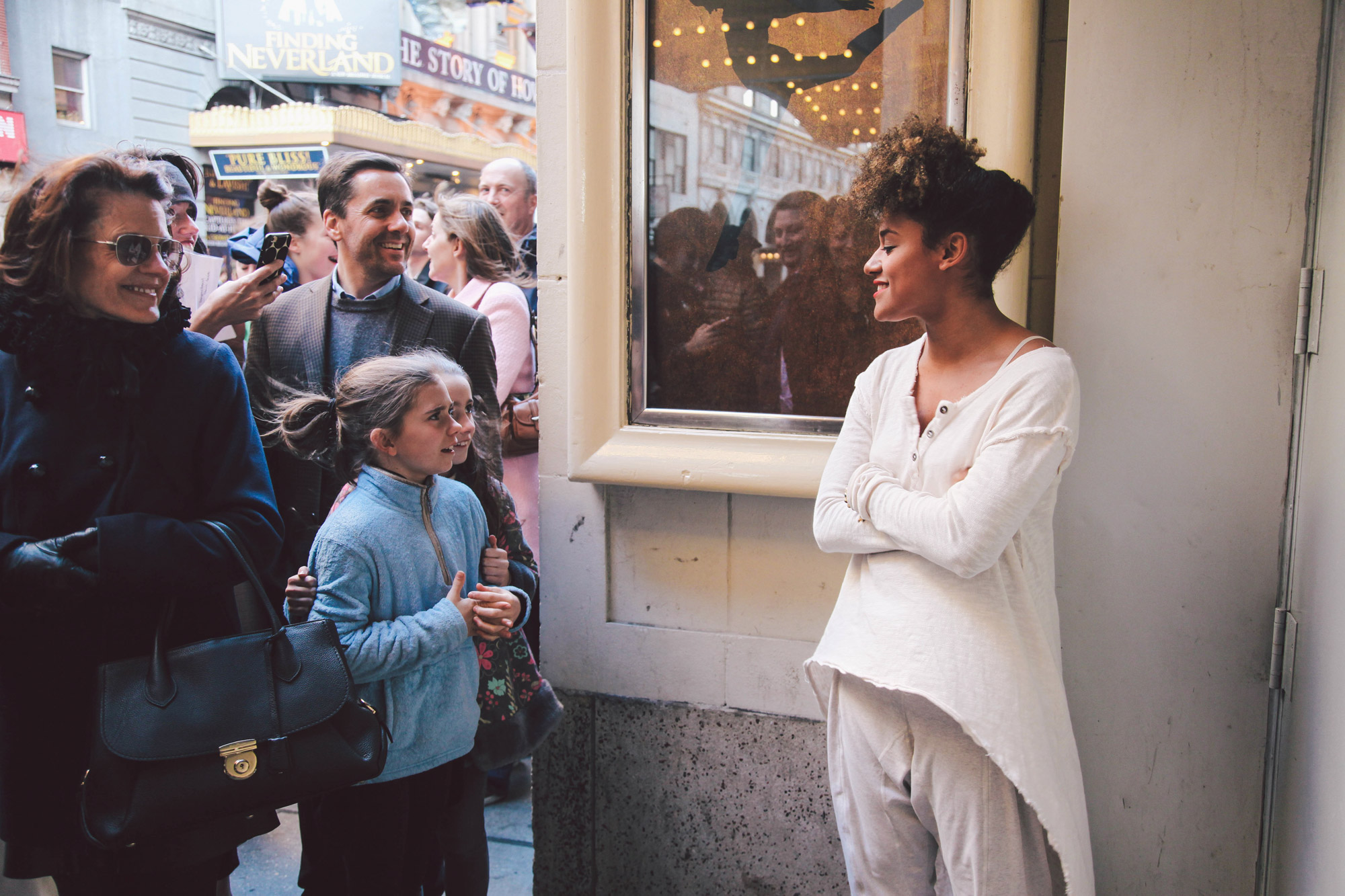
“I remember where I started, and I’m not doing this because I want to be famous—I’m doing it because I want to make people feel something and change the way they think.”
How did you progress from the reading stage to become “The Bullet”? I initially read for Angelica Schuyler. Eventually, they decided to go in a totally different direction, and I realized that I loved the piece so much that I wanted to remain a part of it in whatever way I could. Andy signed on to choreograph the project, but I was in Pippin when he and I spoke. At that time, I had decided that I wasn’t going to do ensemble work for a while so I could focus on getting back to playing characters, because that’s how I came into the business. But Andy convinced me that I needed to do this project, so I said yes.
I didn’t know I was going to be “The Bullet” until one day in rehearsal when Andy said, “Ari, come here and trace this line—you’re going to make the bullet miss Hamilton.” That was the first phase of creating the character of “The Bullet.” He said, “You do it twice: the first time, the bullet misses him, and the second time, it doesn’t.”
What’s it like to know that your role in that part of the play is to kill Hamilton? It’s really intense for me because I always know I’m aiming for him—even if the rest of the ensemble members don’t. So even if I’m just a lady in a ballgown at a party, there’s still a part of my character that knows that that moment is going to come.
You can look at the final duel in a couple different ways. We’re slowing the bullet down to give Hamilton time to say everything he wants to say, or we’re saying, “This is it. It’s inevitable. It’s happening, so you can stare it right in the face.” There are a lot of different ways to interpret it. It was really special to create something like that, because it’s inspired by a lot of different pieces we’ve already seen; it’s very Matrix-like. I’ve never seen a moment on stage like it.
It’s the moment everyone waits for. It’s wild to create that specific moment in history each day of the week. It is. And each audience is different, but the energy is always electric once we get to that moment. I don’t think anybody sees it coming.
Is that your favorite part of the show? No. (laughing) I love the song, “The Room Where It Happens.” It’s a great number, and I love the storytelling within it. It’s completely dance-based, and it’s a style I love: Bob Fosse influenced, but it’s 100% Blankenbuehler at the same time. Not many people realize that everything that surrounds Hamilton is circular, but when you see Burr, it’s square; we make boxes in “The Room Where It Happens.” The concept and mathematics behind that song are fascinating.
“You can look at the final duel in a couple different ways. We’re slowing the bullet down to give Hamilton time to say everything he wants to say, or we’re saying, ‘This is it. It’s inevitable. It’s happening, so you can stare it right in the face.’”
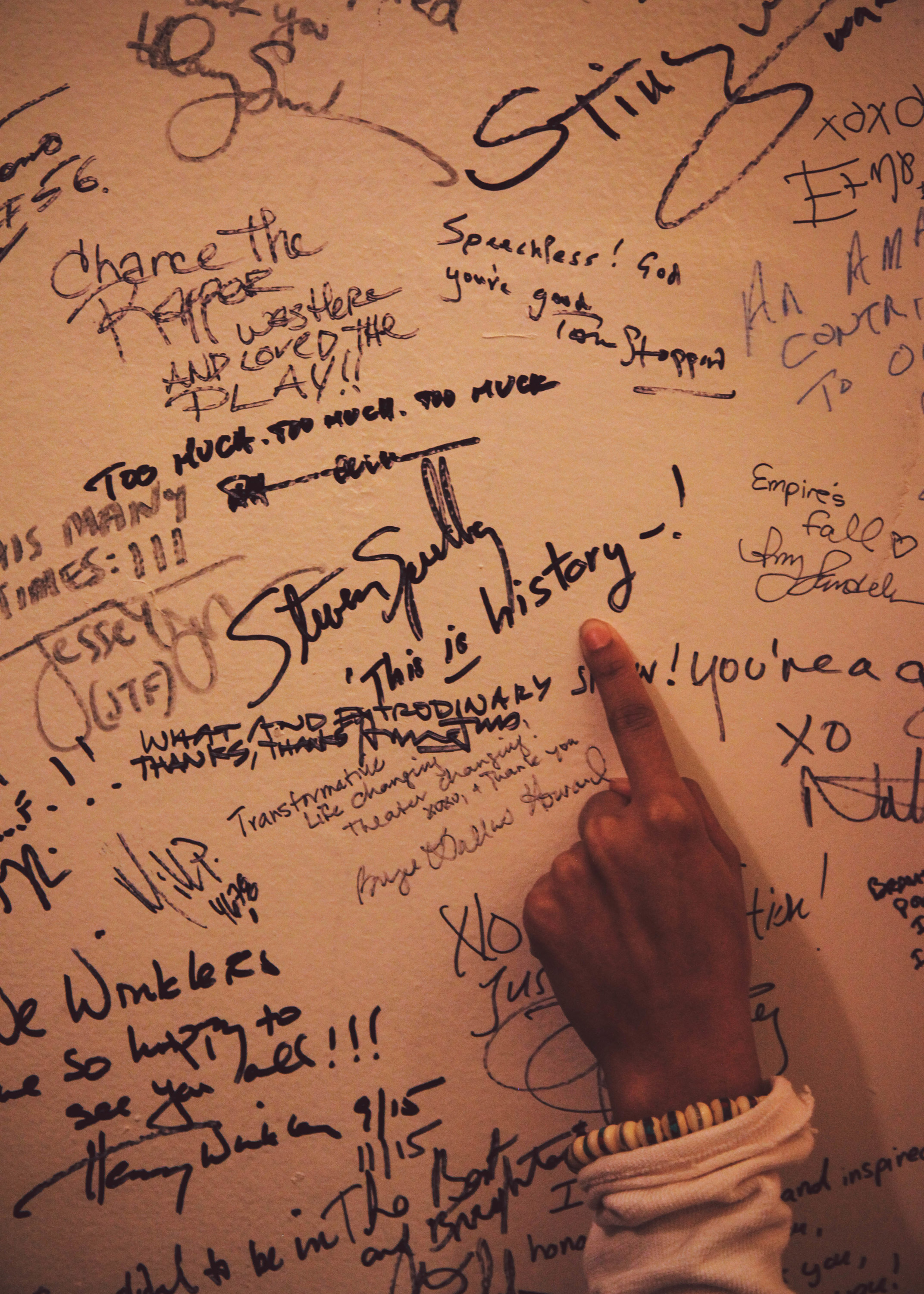
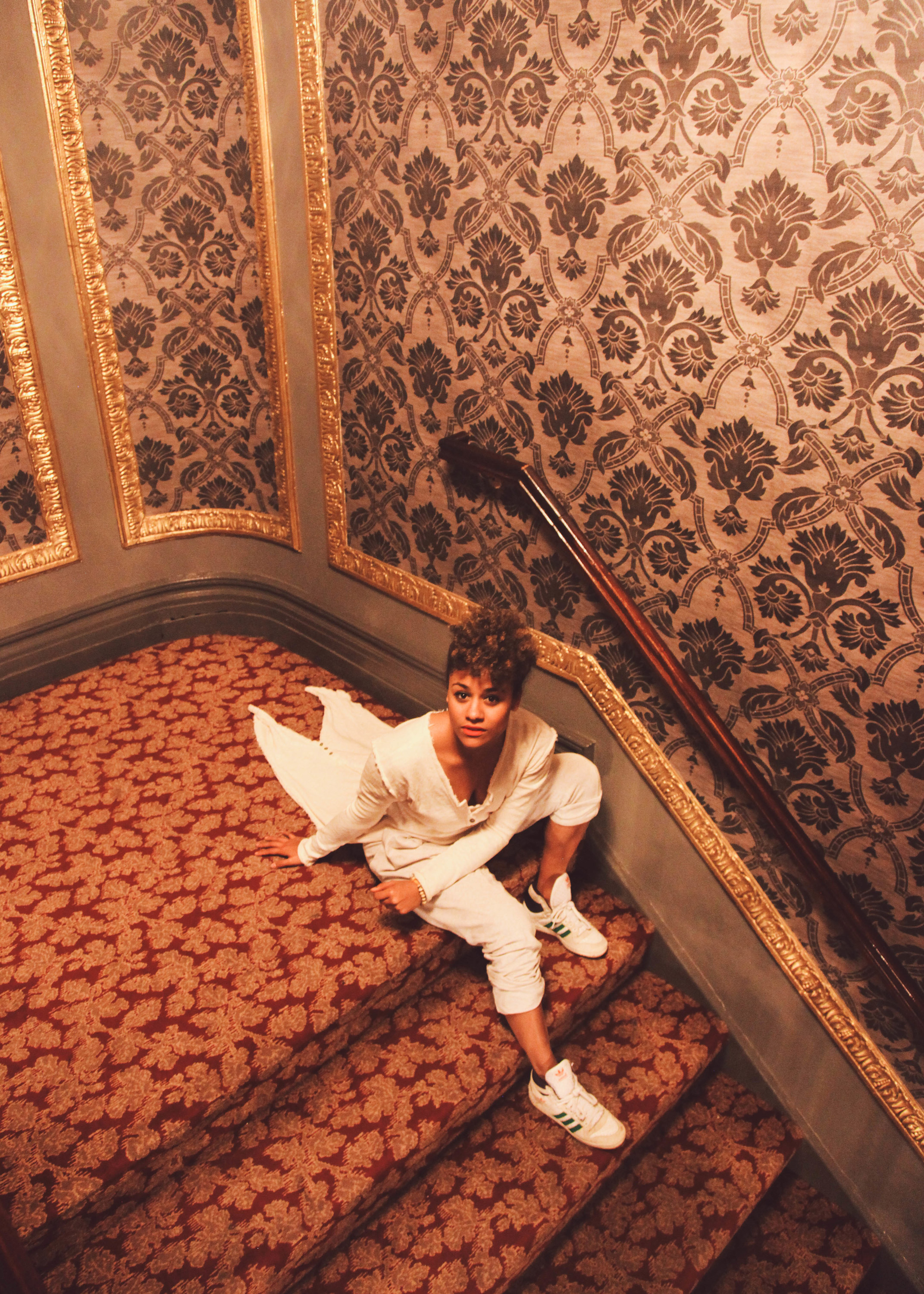
How would you describe that song? That’s the moment in the show when Aaron Burr realizes that there is more to politics than he thought. He realizes the full extent of power-playing that Hamilton has had to go through in order to get to the position he’s currently in. So if you want to be in the room where it happens, then you have to play the game. You have to be willing to go all-in.
There’s a line in the song that says, “You get love for it / You get hate for it / You get nothin’ if you wait for it, wait for it, wait.” In my mind, that’s sort of what the whole song is about: it’s a turning point for Aaron Burr, where he’s like, “You know what? Fine, I’m going to do it. I’m going to do whatever I have to do to get into the room where it happens, because I belong there.”
How do you feel about that sentiment as a young artist? Does it apply to what you do? To some extent. There’s always a game to be played, even when you audition. You have to figure out what they want, and you have to do it in a timely fashion. You also have to find a way to maintain your own artistic integrity and be yourself. All of that is really hard. It comes down to following your instincts, learning how to read a room to understand who your audience is, and playing the truth at the same time. It’s not an easy thing to do, and it takes a specific kind of person who endeavors to create a life of longevity in this industry.
Do you see yourself doing this for your whole life? I think I’ll be involved in the industry in some way for the entirety of my life. Whether or not I will be kicking my legs eight times a week, I don’t know. (laughing)
What are your creative ambitions? I would like to work more in film. I really love filmmaking and just wrapped an indie film in Oregon. It’s called Seaside, and it’s a female revenge thriller, which I played the lead in. It was a fascinating experience and I enjoyed being on location. I don’t think people realize it, but there is a dance that’s done within filmmaking: how the shots line up and what you’re doing within the scene. You’re always dancing, even when you’re standing and talking. You’re dancing with your words. There is always movement.
I think dance will remain the driving force behind the things I want to do, but I’d like to move into filmmaking and writing, too. I would love to write books and plays.
Do you have any words of advice for young dancers out there? One of the biggest things that dance has taught me is how to be disciplined. I learned how to create a regimen for myself on the regular. If you can figure out how to do that, you’ll be set.
More importantly, always be technique-based, period, but study with as many difference people as possible. There is no one right way to do anything. First position is first position, whatever, but I mean stylistically. There won’t ever be just one style that’s the hot thing. The more versatile we are, the better.
Also, being a well-rounded individual informs your dancing more than you know, so take time to experience life. There were times when I wanted to be an adult so bad that I missed opportunities to experience my childhood, and I wish I had taken advantage of that more. Do you know how to ride a bike? Well, you never know when you’ll be asked to dance and ride a bike. Do things that bring you joy, because the more joy that you have stored up in your being, the more you can bring to your dancing—joy is what people want to see. You can even find joy through pain.
What’s your typical day like? How does the physical challenge of performing eight shows a week tie into that? There’s a lot of rest involved. (laughing) Our show comes down shortly after 11pm, and it takes me a while to come down from that, so I may not go to bed until 1 or 2am. I have to let my body recover, so I usually wake up between 9 and 10am and then go do Bikram yoga. I’ve sustained some injuries to my shoulders—I have chronic subluxation—and Bikram is the only activity that helps me maintain the strength of my shoulders. I’m not sure why, but it’s working. So I take Bikram class and then run errands.
Even though I’m in Hamilton, I audition frequently—probably every other day. And if I’m lucky, I get to see a friend for lunch. I try to create some form of human contact with people I love and cherish. I’m very big on taking time for myself, and there’s a lot of stretching involved. And a good tune-up with an acupuncturist never hurts.
When we toured backstage with you, you told us that you love to nap in one of the little balcony boxes. Yes. There is a box located house-right that I go sleep in with a little pillow and blanket. I lay there and nap until my alarm wakes me up in between shows on Wednesdays and Saturdays, it’s like a little sanctuary.
Is there anybody in the cast who you view as a role model or who you’ve learned from? I’ve learned so much from Daveed Diggs and Renée Elise Goldsberry, and I’m pretty close with both of them. Daveed plays Marquis de Lafayette and Thomas Jefferson, and Renée plays Angelica Schuyler.
I’ve learned a lot from Renée, in particular, because she is a female and has had quite a long career in the film and television world and on stage. And she’s done all of that while having two children, which I really admire. She has made having a family and a career work, and still looks flawless while doing it. She’s helped me delve into my acting; she’s like my unofficial acting coach when I need her. She is also an all-around good person and dear friend. She is like human sunshine, that woman.
And Daveed is like a big brother to me. We’ll go out for burgers after the show and catch up. It’s wonderful when you find people you don’t have to only talk business with. Business does rule a lot of my world, so when I discover people who share some of my interests and who help me find a good balance between normal life and career, I hold onto those folks. They’re few and far between.
There’s a beautiful phrase spoken many times throughout Hamilton, which is, “Who tells your story?” How do you want your story to be told in the future? That’s a big question. No matter what I end up doing, I’d like people to remember that I strove to be fearless and tried to put out the energy I want to get back. That’s all you can do: put out good energy and hope that it comes back to you in everything you do—you career, personal life, friendships, all of it.
I recently had lunch with a friend I hadn’t seen in years, and there was a homeless man who walked by while we were sitting outside. He struck me as different from some of the other people I see in his situation. I looked at my french fries, took them out of the bag, and gave them to him. He said, “Thank you. I haven’t eaten in four days.”
I want to get back to doing good for the sake of doing good, and not because I want to get anything out of it. I hope that one day the energy I put out into the world does come back to me in some way when I most need it. But doing good just for the sake of doing good is actually more valuable than anything else.
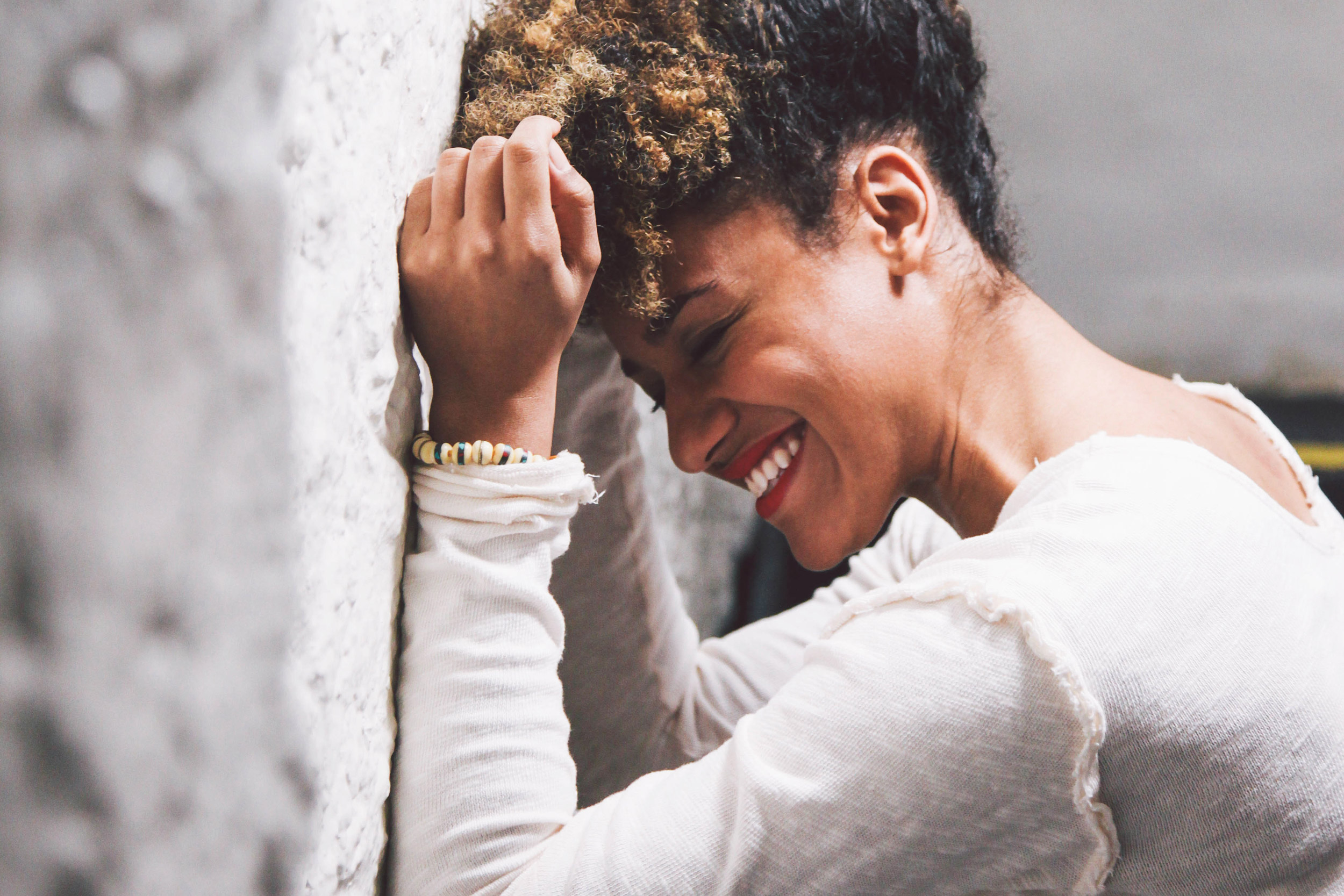
“Do things that bring you joy, because the more joy that you have stored up in your being, the more you can bring to your dancing—joy is what people want to see.”
